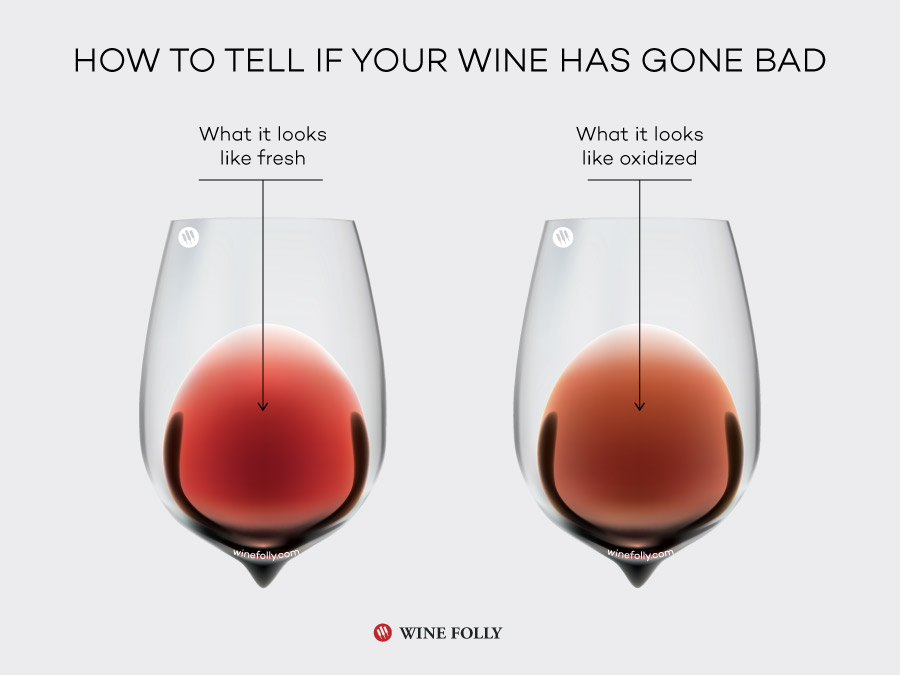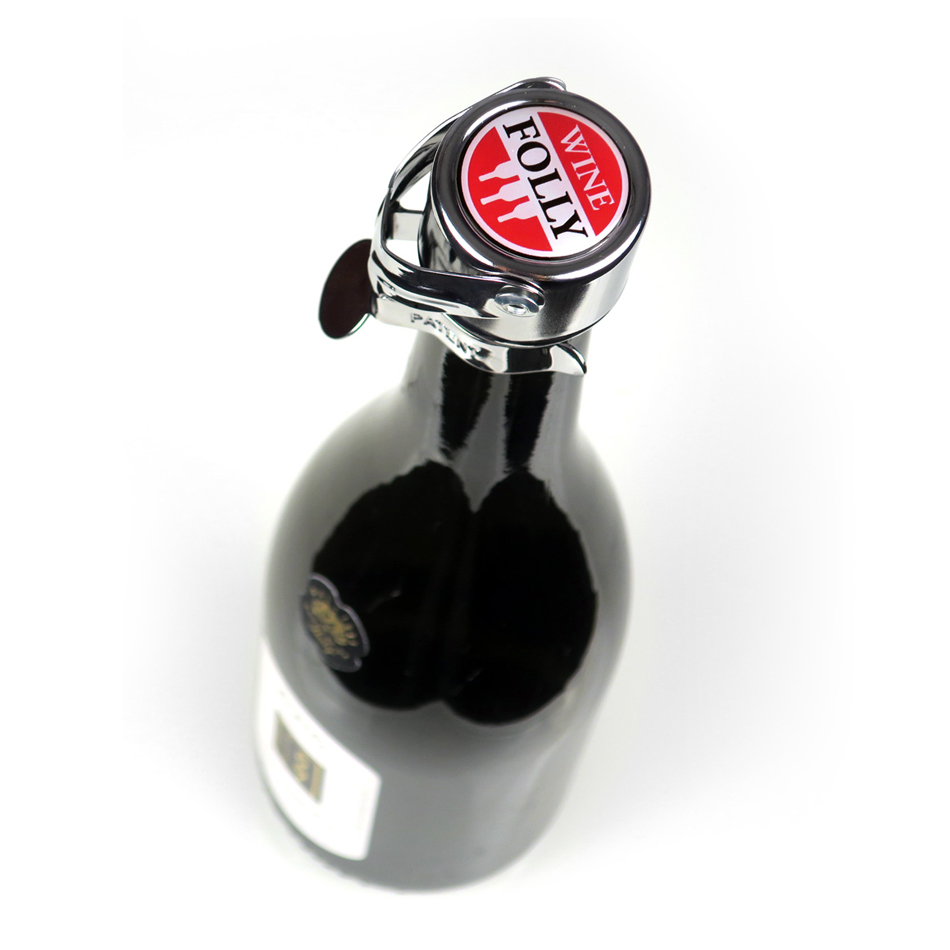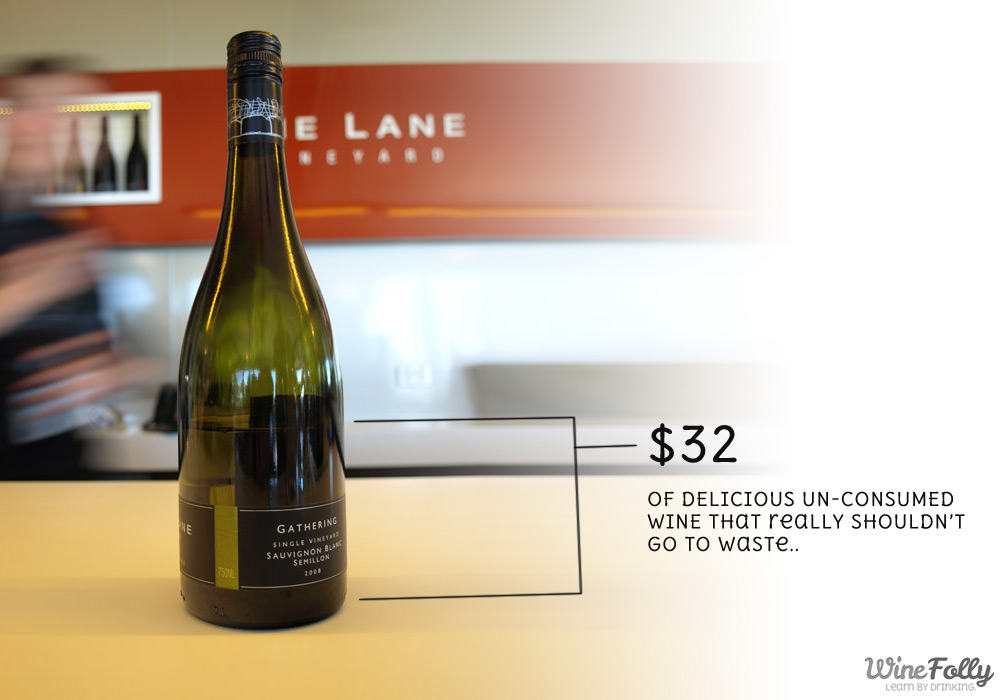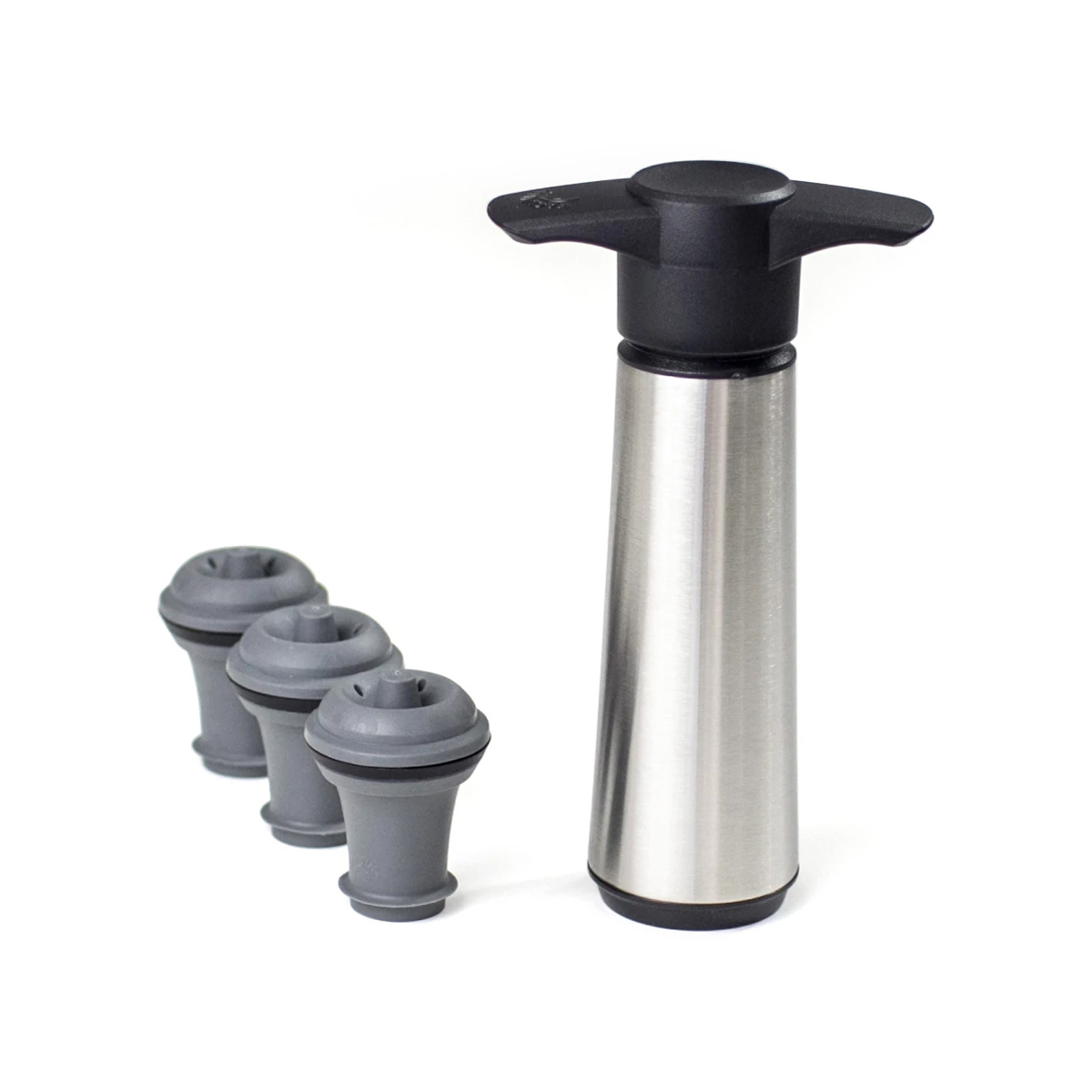Storing Open Red Wine
It’s rare that I can’t polish off an open bottle of wine. The thought of abandoning the delicious nectar of gods and letting it go to waste is a tragedy beyond compare.
However, sometimes I’m left with no choice but to store wine for later. So, let’s learn how best to preserve wine and how long it will last.
How to Store Open Wine
Why Open Red Wine Goes Bad
Oxygen turns red wine into vinegar. Thus the key is to reduce the amount of oxygen touching the surface when storing open red wine. There are a few methods used to prolong shelf life, all based on minimizing exposure to oxygen either by replacing or removing the oxygen or reducing the surface area of the wine. With the necessary TLC, some red wines can be stored open for up to a week.
Basics After Opening
Re-cork the wine after every glass pour. Keep the open wine bottle out of light and stored under room temperature. In most cases, a refrigerator goes a long way to keeping wine for longer, even red wines. When stored at colder temperatures, the chemical processes slow down, including the process of oxidation that takes place when oxygen hits the wine. Wine stored by cork inside the fridge will stay relatively fresh for up to 3-5 days. This is a good start, but I think we can do better!
Freshness Tips
- For best results, store the wine upright to minimize the surface area exposed to oxygen.
- Prevent dramatic temperature changes that can damage your wine, such as quickly going from cold to hot.
- You can warm up a red wine bottle in lukewarm water. Be careful not to use hot water. It should only be slightly warmer than room temperature.
What to Avoid When Storing Open Red Wine
- Avoid storing on its side – it increases the surface area exposed to oxygen.
- Don’t store by a window – because of sun exposure and discoloration.
- Don’t store above 70 ºF – better to store open wines in the fridge!
If you don’t want to buy any wine preserving tools, consider rebottling the wine in a smaller container to reduce the amount of wine that touches air.
Buy a Wine Preserver
There are a few wine preservation systems available. Most of them don’t work that well, some do more harm than good, and others are just blatant rip-offs.
I’ve narrowed it down to two fundamental types: the vacuum pump wine preservation and inert wine gas preservation.
Vacuum Pump
The Affordable Option. The vacuvin might not be a perfect preservation system, but it’s a great one to use for your everyday drinkers. We’ve tested wines open for up to 2 weeks (stored in the fridge) that still tasted fresh.
The vacuvin is a great tool for the everyday wine drinker. Honestly, everyone should have one.

Inert Gas Preservation
The Enthusiast Option. The Coravin was invented in 2011 but didn’t hit the marketplace for a couple of years. This device isn’t cheap (model range between $200–$400), but for the serious enthusiast, it’s quite the find. The needle pierces through the cork and extracts wine while inserting argon gas in its place. We’ve tested one for about 10 months (in variable “closet” conditions) and were surprised at the freshness of the wine.
The coravin is a great way to taste your favorite wines without opening the whole bottle.

Which Red Wines Go Bad The Quickest
- Pinot Noir is one of the most sensitive red wines when exposed to air.
- Old wine over 8-10 years – Once we drank a 10-year-old pinot noir that went bad in 4 hours! PS Shame on you for not finishing a 10-year-old bottle!
- Organic wine or sulfite-free wine is typically more fragile.
- Light-colored red wine varietals including Grenache, Sangiovese, Zinfandel, Nebbiolo

How About Storing Sparkling Wines?
Oh, lovely sparkling wine. Did you know that many people prefer day-old Champagne over freshly opened Champagne?
Letting the bubbles settle gives the wine a chance to off-gas and cuts the carbonation, rounding out the flavors. (Try it, let me know what you think!) You might not realize, but you shouldn’t vacuum pump sparkling wine. It will suck out your bubbles and leave a terrible void in your soul. Gross.
Champagne Stopper
Hands down, this is the best Champagne wine stopper you can buy for the price. The WAF’s patented design makes opening and closing a bottle of bubbly a one-handed operation that won’t ever pop off. Great for home or restaurant use.
It keeps wine for about 2–3 days.

